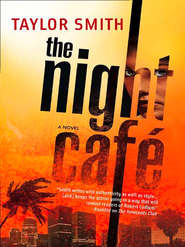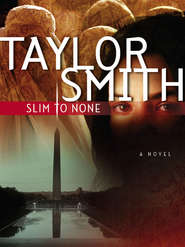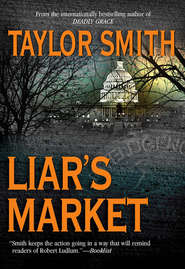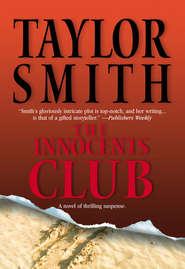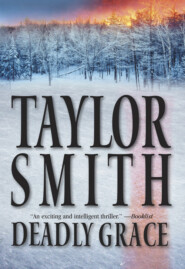По всем вопросам обращайтесь на: info@litportal.ru
(©) 2003-2024.
✖
Guilt By Silence
Автор
Год написания книги
2018
Настройки чтения
Размер шрифта
Высота строк
Поля
Just once more around, she promised herself, passing the entrance. One more time, and then she would do it again—go in and pretend. Pretend that nothing had really changed—that they were still a family. That they could cope. Pretend that his being in here was just a minor inconvenience. Pretend that it didn’t matter that he would never hold her in his arms or make love to her again. Pretend that Lindsay didn’t miss his stupid jokes or his hockey lessons or the giggling conspiracies the two of them used to mount whenever Mariah tried to reprimand them about junk food and the rules about bedtime.
David was in there waiting, she knew—he had nothing to do but wait for her and Lindsay.
It was ten months since the accident in Vienna; six since she had brought him back home to Virginia. In the first weeks they were back, friends and family had come to visit wearing carefully crafted, upbeat smiles that never wavered. But their eyes, when they saw him, were shocked and frightened, even though Mariah had tried to prepare them for the devastating changes the accident had wrought. They would pat his arm bravely at first, but then Mariah would see them subtly withdraw, their fingers recoiling from his atrophied muscles and the bone-thinness of the flesh under his shirt. After that, they almost never touched him again, except perhaps for a quick squeeze of his gnarled hand as they left.
They would ramble on one-sidedly to him about things David probably wouldn’t have cared about even if he could have responded—and they knew it. But what else did you say to a genius whose mind, or what was left of it, was revealed only through an occasional flicker in his dark eyes?
The visitors would glance anxiously at Mariah, wondering whether David knew who they were and what they were talking about, but even she had no way of knowing for sure what registered with him and what didn’t. Sometimes he seemed to be taking in everything, his eyes reflecting something like amusement or interest, or narrowing, as if he was pondering some problem. But other times, he seemed lost in an inner world that she couldn’t reach. The eyes would fix momentarily on a face, then drift away, distracted by a curtain blowing at a window or a speck of dust dancing in a sunbeam.
These days, very few people came to see him anymore.
Finally pulling into a parking space, Mariah tilted the rearview mirror and gave her sandy hair a poke or two to fluff it up a little. The cut was soft but short—practical, hair for a woman with no time to fuss. She wore almost no makeup, except for a little mascara to darken her fair lashes. She ran her fingers absently under her eyes to erase the end-of-day smudges that turned her gray eyes smoky. Then she paused. The eyes watching her from the mirror were critical, asking her for the thousandth time if she couldn’t have arranged things differently. She had posed the same question every day since it became clear that David wasn’t going to recover from his injuries.
A runaway truck had plowed head-on into his car as he waited to pull into the driveway of the American International School in Vienna, climbing over the hood and crushing the passenger compartment. Everyone said it was a miracle that Mariah’s husband and daughter hadn’t been killed outright, but it was a qualified miracle at best: David’s skull had been fractured like an eggshell; Lindsay had come frighteningly close to losing her left leg.
But despite the reproachful gaze of the eyes staring back from the mirror, Mariah knew that she had had no choice. She couldn’t give him at home the extensive care he needed, especially with their daughter’s recovery to worry about, too, and a demanding job that provided the income and insurance to cover staggering medical bills—a State Department job, she always told people, the lie second nature by now.
She sighed and turned the mirror away. Grabbing a paper bag off the front seat and slinging her purse over her shoulder, she climbed out of the car.
Across the parking lot, another pair of eyes—a mismatched pair, one green, one ice blue—watched her lock the Volvo’s doors and start toward the building’s entrance.
Rollie Burton gnawed thoughtfully on the inside of his cheek while in his hand, a six-inch blade appeared and disappeared in a steady rhythm. The knife was one he had picked up years ago in Hong Kong—a beauty, with superior balance and a blade of fine Sheffield steel. Its intricately carved ivory handle depicted a Manchu dynasty garden of roses and ivy. There were rust-colored stains in the handle’s deep crevices, as if the roses themselves had bled as they were carved.
He flicked the catch on the ivory handle and the blade snapped open again, glinting under the parking-lot lights. Pushing the point against his gloved left hand, he retracted it, only to snap it open on the next heartbeat. Snap, retract. Snap, retract. Over and over.
He had her picture in the leather case on the seat beside him, as well as the down payment on the job—ten thousand dollars in small, used bills. There was also a loaded Sig-Sauer automatic and an extra clip of ammunition. But he preferred the blade—silent and swift, especially in his skilled hands.
She was prettier in person than in her picture, he thought. The overhead lights in the parking lot emphasized high cheekbones and a full mouth. He would have guessed her to be in her early thirties, but the voice on the phone had said she was thirty-nine. She was small but she moved fluidly, with a grace usually reserved for cats and dancers. Although it was impossible to make out her shape under the flowing trench coat she wore, he knew that a body had to be in superb condition to move that well. He wondered idly who would want to waste her—not that he cared, as long as he was paid for his work.
When the phone call had come the previous day, the voice had said they wanted it to look like a random act—one of the dozens of muggings that happen every day in the greater Washington area. The voice had had an eerie quality: flat, tinny. Burton was used to job offers from odd quarters, but there was something really creepy about that voice. Still, it wasn’t as if it had asked him to do anything unusual. Things were a little slow these days, but in his prime, Burton had handled dozens of wet jobs, most of them in tricky foreign environments. This one looked to be a piece of cake.
When he’d agreed to take on the job, the caller had directed him to a Dumpster behind Bloomingdale’s at Tyson’s Corner. There he had found the case of cash and the photo, as well as information on his target’s regular movements. Sure enough, Burton had picked her up just where he’d been informed she could usually be found each Wednesday evening—at the Montgomery Convalescent Care Home in McLean, Virginia.
There was no fixed deadline—just do it soon, the voice had said. The sooner the better, Burton thought, glancing around the quiet parking lot. He had expected to track her for a few days before making his move, but twenty-five years in the business had taught him that you don’t pass up a prime opportunity when it’s handed to you on a silver platter. No point in dragging these things out.
He had his hand on the door handle, ready to slip out of the car. She was almost halfway across the parking lot, but Burton knew he could be on her in a few quick strides. He was still wiry and fast when he shifted into high gear.
Waiting for precisely the right time to move, he considered his options. With a bigger target, he’d aim for the space between the second and third ribs—a neat slash to the heart, then out. If there was a struggle, an upward slice in the gut was effective but messy, and the target took longer to die. In this case, however, the best bet was the throat. Rollie Burton was a bantamweight, but she was smaller. It would be easy enough to grab her by the hair for the split second it would take to do the job. Cut and run, he decided, stepping out of the car and silently closing the door. He’d have to remember to take her purse, for appearance’ sake.
It was only a little past five, but a cold night had already set in, the lonely smell of an early winter rain in the air. Burton moved through the shadows of the old oak trees that dotted the lot, their dark, skeletal branches trembling overhead. He was coming up just behind her, the fingers of his left hand flexing in anticipation of the grab, his right thumb poised over the hair-trigger catch on the knife.
Suddenly, there was a bustle at the main entrance fifty yards away. He held back, crouching deeper into the shadows as the front door opened and three people came out—an elderly woman and two men who might have been her sons. The men huddled around her, supporting her by the elbows, murmuring as she cried softly.
Cursing under his breath, Burton pocketed the knife as his target walked from the parking lot along a short walkway to the entrance. She stepped out of the path of the family coming down the staircase, watched them for a moment, then ran up the front steps of the nursing home. Burton turned and headed back to his car, regretful but philosophical. No matter—he might still have a chance to get her on the way out. Besides, if this was too easy, he might feel he hadn’t earned his fee. That’d be a shame, he thought, snorting lightly. Guilt had never been his strong suit.
2
As she passed through the front doors, Mariah noticed that she was holding her breath. Sooner or later, though, you have to breathe. She made it past the receptionist and almost as far as the east-wing nursing station before drawing her first breath, hoping the delay would help—but it was futile, of course. Little sensors in her nose had been at work even as she nodded to the woman at the front desk, an early warning system for the incoming olfactory assault. And when she finally inhaled, her stomach plunged as always at the smell of medicine and antiseptic, starched linen and slowly dying flesh.
The young nurse at the station smiled brightly as she saw Mariah approach. “Hi, Mrs. Tardiff,” she said.
The nurses knew her well by now—knew she normally used Bolt, her own surname, not David’s, but she had told them she had no objection to being called Mrs. Tardiff, if they preferred. Most, especially the older nurses, seemed more comfortable with that, likely suspicious of her disregard for the proper order of things. David would have been more insistent than Mariah herself on her right to use her own name, but he was in no position to argue with anyone—on points of principle or anything else.
“He’s been looking forward to seeing you,” the nurse said. “The orderly rolled him into the hallway an hour ago.”
Mariah nodded and forced a smile. This nurse had a sweet disposition and meant no reproach, she knew, but she gave herself a mental lashing anyway. “Traffic,” she said. “It’s awful tonight.” The nurse smiled sympathetically.
Mariah turned the corner and headed down the hall. David’s was the last room on the right and she could see his wheelchair outside the door, past all the other lonely souls—ancients, most of them, waiting and watching with futile hope in their eyes each time a visitor entered the corridor. Mariah smiled at some of the old-timers as she walked by, pausing briefly to squeeze the hand of the old lady who always called her Thelma and asked about the boys.
“They’re fine, Mrs. Lake, just fine,” she answered, as she always did, now that she had given up trying to explain that she wasn’t Thelma—wondering, as she always did, who the real Thelma was and whether the boys were really fine
She turned once more toward David. She could see him clearly now, watching her every step—those deep brown eyes with irises so dark that the pupils were invisible. Large, innocent eyes that looked right into your soul. Who could resist them? Certainly she had never been able to.
She had met him in the mid-seventies, the year before the Central Intelligence Agency had recruited her. She was a graduate student at the University of California at Berkeley, a political science major specializing in the Soviet-American arms race. When her liberal arts background left her bogged down in the complexities of nuclear weapons, her thesis adviser sent her to the head of the physics department. He, in turn, introduced her to David Tardiff, one of the department’s youngest and brightest doctoral candidates.
But if physics brought Mariah and David together in the first place, biology took over pretty quickly thereafter. Mariah was taken by surprise. Her mother’s life had been ruined by Mariah’s father, a poet and novelist still lionized in literary circles, long after his death. He was no hero to Mariah. How could he be, after abandoning his young child and pregnant wife to pursue his own self-absorbed whims?
Buffeted by a cascade of losses that began with her father’s betrayal, Mariah had grown up determined to chart an independent course for her life—one that certainly didn’t include falling under the sway of some boy wonder from New Hampshire. David Tardiff was on the short side, barely five-eight. Compared to the strapping, blond, too-cool-for-words beach boys she had grown up with in southern California, Mariah found him a bit on the homely side, his nose a little too large, his mop of black curls a little too unruly. And he was cocky, she told herself—funny and bright, but awfully sure of himself.
Still, as she had listened to him wax enthusiastic about physics and hockey—his other driving passion—her longstanding defenses against emotional involvement crumbled. Within three months, they were living together in a tiny Berkeley apartment, making plans for the future. But then things changed—that was the first time she lost David.
The University of California ran a top-secret nuclear weapons research facility at Los Alamos, New Mexico, on behalf of the federal government, and Berkeley’s physics department supplied many of the lab’s research staff. It came as no real surprise, then, when six months after they moved in together, David was offered a job at the Los Alamos weapons lab.
Mariah followed him into the desert to work in earnest on her graduate thesis. But if New Mexico provided a good working environment for the thesis, it was no place to nurture their relationship. The split finally came the day Mariah watched a military truck towing a canvas-draped missile through the center of town. She confronted David late that night when he came in from the lab.
“David, this isn’t the place for us.”
He was nuzzling her neck and missed the point. “How about the dining-room table?” he asked, wrapping his arms around her more tightly. “Don’t you just love all this space? So many options!”
Mariah poked him in the ribs with her elbow, laughing in spite of herself. “That’s not what I’m talking about! ” Her smile faded. “I mean Los Alamos.”
He held her at arm’s length, his twinkling dark eyes betraying the clever comeback he was formulating—but her own expression must have squelched the urge. “What’s wrong with it? You’ve got teaching prospects here. And it’s a clean, safe place to make babies and raise a family,” he added, pulling her close again.
“Safe? It’s a nuclear bomb factory! Don’t you ever think about what it is you do over at that lab?”
“We do science—good science, with equipment that any university researcher would kill to get his hands on.”
“Yeah, well, kill is definitely the operative word here. You guys design nuclear weapons.”
“We unlock the secrets of the atom. Come on, Mariah, lighten up. The lab does nonmilitary work, too, you know that. And this work is exciting. The atom holds the key to unlimited energy—not to mention incredible biomedical and industrial advances. Weapons are the least interesting part of it.”
“That’s just a cop-out. If there’s one thing this lab stands for, it’s the creation of the bomb.”
“You can’t blame scientists if the government perverts our work,” he said, a stubborn frown forming on his forehead. “We can’t be responsible for the ethics of the whole nation. The weapons work could be stopped, if people had the guts to say ‘no more.”’
“Oh, dammit, David,” Mariah said sadly. “I’m not stupid—or naïve. I know we won’t get rid of nuclear weapons tomorrow, now that the genie’s out of the bottle. But we design a new bomb, and then the Russians build one bigger than ours, and then we make ours even more deadly, and on and on and on. I just can’t watch you waste your talents by helping these guys develop the ultimate doomsday machine. Because that’s the real reason you’re all here, and you know it.”
They’d had the same argument a dozen times since David had accepted the Los Alamos job. The silence between them as they pulled away from each other that night had simply concluded the debate once and for all with a permanent agreement to disagree. In the end, she had left David and New Mexico and taken a job as an analyst at CIA headquarters in Virginia—telling herself that whatever she might do to help restrain the Soviet nuclear threat could also make the work of David and his Los Alamos colleagues superfluous.






